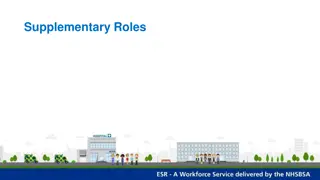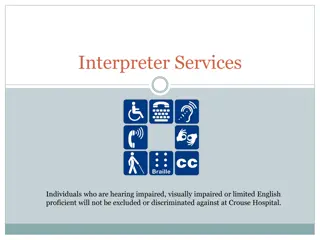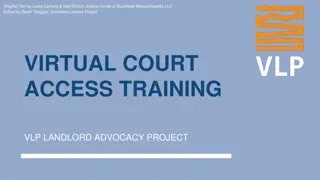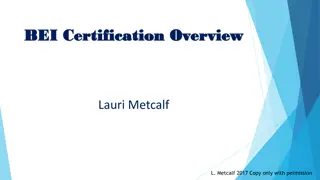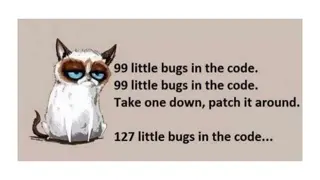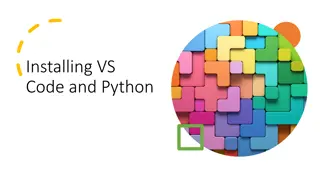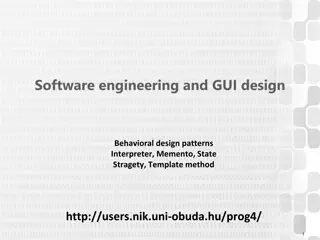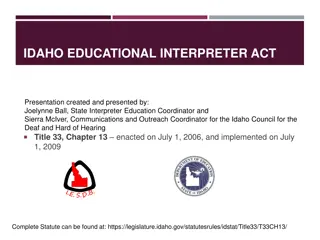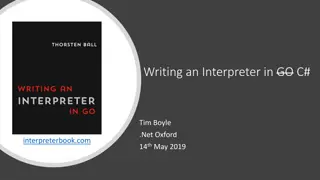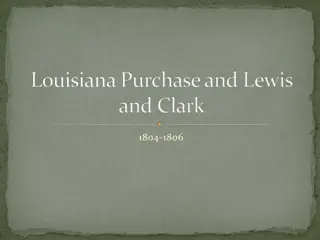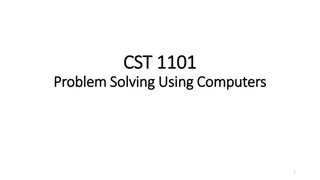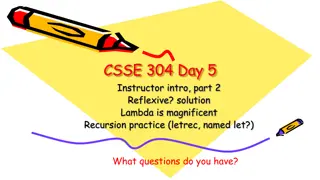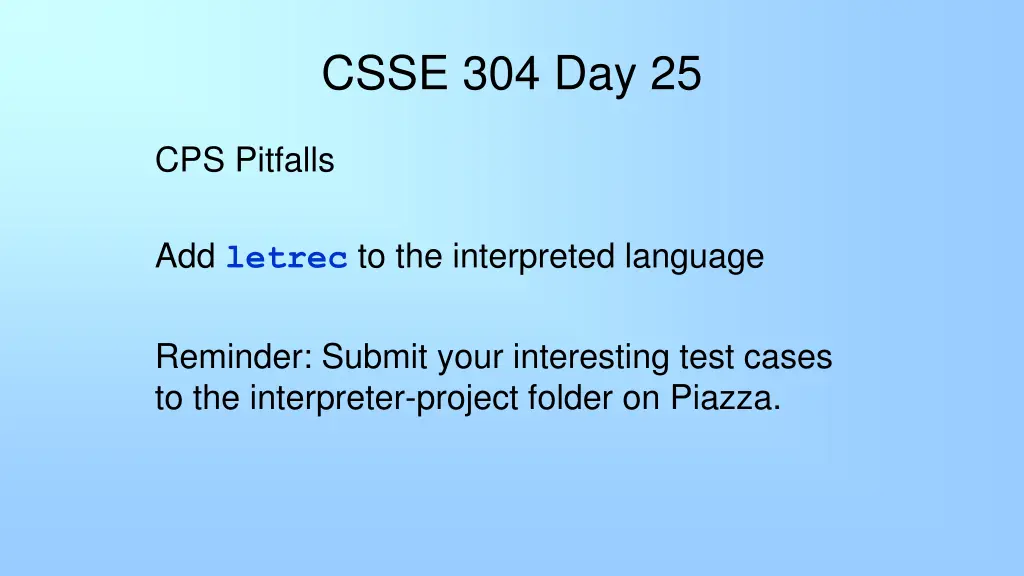
Understanding CPS Pitfalls in Interpreted Languages
Explore common pitfalls in Continuation-Passing Style (CPS) programming related to tail positions and non-primitive procedure calls. Learn tips to avoid these pitfalls and improve your code quality in interpreted languages.
Download Presentation

Please find below an Image/Link to download the presentation.
The content on the website is provided AS IS for your information and personal use only. It may not be sold, licensed, or shared on other websites without obtaining consent from the author. If you encounter any issues during the download, it is possible that the publisher has removed the file from their server.
You are allowed to download the files provided on this website for personal or commercial use, subject to the condition that they are used lawfully. All files are the property of their respective owners.
The content on the website is provided AS IS for your information and personal use only. It may not be sold, licensed, or shared on other websites without obtaining consent from the author.
E N D
Presentation Transcript
CSSE 304 Day 25 CPS Pitfalls Add letrec to the interpreted language Reminder: Submit your interesting test cases to the interpreter-project folder on Piazza.
CPS tips The one thing to avoid: A call to a substantial procedure in a non-tail position. apply-k is a substantial procedure; make-k is not. Whenever you get an answer without doing a substantial call, don t forget to call apply-k. Ask "what happens next", and put it on the outside of the remaining code, with later things "inside", as part of the continuation. If you think the continuation of a recursive call should be (lambda(v) v), or init-k in the case of datatype continuations, there's a good chance that your code is not actually in tail form. Regardless of what the server says, no credit if code is not in tail form
Some incorrect CPS code All of this code was submitted by students in previous terms. (define set?-cps (lambda (ls k) (cond [(null? ls) (apply-k k #t)] [(member?-cps (car ls) (cdr ls) (make-k (lambda (v) v))) (apply-k k #f)] [else (set?-cps (cdr ls) k)]))) Which calls to substantial procedures are not in tail-position?
Some incorrect CPS code All of this code was submitted by students in previous terms. (define andmap-cps (lambda (pred?-cps ls k) (cond [(null? ls) (apply-k k #t)] [(pred?-cps (car ls) (make-k (lambda (v) v))) (andmap-cps pred?-cps (cdr ls) k)] [else (apply-k k #f)]))) Which call(s) to non-primitive procedures is/are not in tail-position?
Some incorrect CPS code (define identity (make-k (lambda (k) k))) (define matrix?-cps (lambda (m k) (if (list?-cps m identity) (if (not (null? m)) (if (not (null? (car m))) (if (andmap-cps list?-cps m identity) (if (andmap-cps (make-cps Which call(s) to non-primitive procedures is/are not in tail-position? (lambda (L) (= (length-cps L identity) (length-cps (car m) identity)))) (cdr m) identity) (apply-k k #t) (apply-k k #f)) (apply-k k #f)) (apply-k k #f)) (apply-k k #f)) (apply-k k #f))))
Some incorrect CPS code (define matrix?-cps (lambda (ls k) (if (not (list?-cps ls (make-k (lambda (v) v)))) (apply-k k #f) (if (null? ls) (apply-k k #f) (if (null? (car ls)) (apply-k k #f) (if (not (andmap-cps list?-cps ls (make-k (lambda (v) v)))) (apply-k k #f) (if (not (andmap-cps (make-cps (lambda (L) (length-cps L (lambda (v) (= v (length-cps (car ls) (make-k (lambda (v) v)))))))) (cdr ls) (lambda (v) v))) (apply-k k #f) (apply-k k #t)))))))) Which call(s) to non-primitive procedures is/are not in tail- position? What is common to all of the non- tail recursion "CPS calls" in all of these examples?
CPS and the future of 304 Practice writing CPS code (A15) Add other features to interpreter (no CPS) (A16-17) (In class weeks 7-8) Learn how call/cc works. Convert interpreter to CPS (A 18a) Use the data-structures representation of continuations in your interpreter Use CPS interpreter to add call/cc to our interpreted language. (A 18b) Convert CPS code to imperative form, check code for tail form (A 19)
iota From CSUG: From Wikipedia: For practice later: Use iota to write range: (range 5 9) (5 6 7 8 9)
Add letrec to the interpreted language Limited version of letrec One that s like the way letrec SHOULD always be used. (letrec ([var <lambda-exp>] ... ) body body2 ... ) could be parsed into [letrec-exp (proc-names (list-of symbol?)) (idss (list-of (list-of symbol?))) (bodiess (list-of (list-of expression?))) (letrec-bodies (list-of expression?)] This is one possible way of parsing it. 0thers are also acceptable.
[letrec-exp (proc-names (list-of symbol?)) (idss (list-of (list-of symbol?))) (bodiess (list-of (list-of expression?))) (letrec-bodies (list-of expression?))] Example of a parsed letrec expression (define odd? (letrec ([odd? (lambda (n) (if (zero? n) #f (even? (- n 1))))] [even? (lambda (m) (if (zero? m) #t (odd? (- m 1))))]) (lambda (x) (odd? x)))) This is one possible way of parsing it. 0thers are also accepta- ble. Parsed from of the blue code: (letrec-exp (odd? even?) ((n) (m)) (((if-exp (app-exp (var-exp zero?) (var-exp n)) )) ((if-exp (app-exp (var-exp zero?) (var-exp m)) ))) ((lambda-exp (x) ((app-exp (var-exp odd?) (var-exp x))))))
letrec Evaluation Closures are created and added to the letrec environment bodies of the letrec are evaluated in order When one of the letrec closures is applied new environment must extend the letrec environment If it were let instead of letrec, the new environment would extend the enclosing environment instead
How to evaluate letrec? (define eval-exp (lambda (exp env) (cases expression exp . . . [letrec-exp (proc-names idss bodiess letrec-bodies) (eval-bodies letrec-bodies (extend-env-recursively proc-names idss bodiess env))] . . . We saw when we drew environment and closure diagrams that we need a recursive environment here So the question becomes: how do we implement extend-env-recursively?
Extend-env-recursively: Three possible approaches 0. Implement extend-env-recursively in terms of Scheme's letrec. Nope! 1. No mutation: A new kind of environment extension: recursively-extended-env-record 2. Mutation: A normal extended environment, then use set-car! or vector-set! to implement the circularity.
datatype for no-mutation approach (define-datatype environment environment? [empty-env-record] [extended-env-record (syms (list-of symbol?)) (vals (list-of scheme-value?)) (env environment?)] [recursively-extended-env-record (proc-names (list-of symbol?)) (idss (list-of (list-of symbol?))) (bodiess (list-of (list-of expression?))) (old-env environment?)]) We already had these two variants
Recursive extension without mutation (define extend-env-recursively (lambda (proc-names idss bodiess old-env) (recursively-extended-env-record proc-names idss bodiess old-env)))
(define apply-env (lambda (env sym) (cases environment env [empty-env-record ()(apply-global-env sym)] [extended-env-record (syms vals env) (let ((pos (list-find-position sym syms))) (if (number? pos) (list-ref vals pos) (apply-env env sym)))] [recursively-extended-env-record (procnames idss bodiess old-env) (let ([pos (list-find-position sym procnames)]) (if (number? pos) (closure (list-ref idss pos) (list-ref bodiess pos) env) (apply-env old-env sym)))]))) What is the disadvantage of this approach? Why not simply do it like let environments?
Mutation solution: Uses the ribcage implementation of environments.
Mutation solution: Uses the ribcage implementation of environments. (define extend-env-recursively (lambda (proc-names idss bodiess old-env) (let ([len (length proc-names)]) (let ([vec (make-vector len)]) (let ([env (extended-env-record proc-names vec old-env)]) (for-each (lambda (pos ids bodies) (vector-set! vec pos (closure ids bodies env))) (iota len) idss bodiess) env))))) You can easily write the code With this representation, we can use the original extended-env- record and apply- env; it does not need the additional case for recursive environments. This let has two bodies (iota 4) (0 1 2 3)
Note that in this mutation approach, we do not need recursively- extended-env-records, and we do not have to change apply-env at all.
Another Mutation solution: Expand the source code using syntax-expand. (define odd? (letrec ([o? (lambda (n) (if (zero? n) #f (e? (- n 1))))] [e? (lambda (m) (if (zero? m) #t (o? (- m 1))))]) o?)) How can we expand this to an expression involving let and set! ?
Onward to set! implementation. We may will not get here on Monday.
Binding vs. Assignment A binding creates a new name and associated value. In Scheme, accomplished by define, let, letrec, or application of a closure An assignment changes the value of a variable an existing binding. set!, or top-level define of an already-defined variable.
Add set! to the interpreter r-values vs l-values x = x + 1; We need a way of changing the value of a bound variable Why doesn't the current setup support this? How can we fix this?
Add set! to the interpreter ADT approach: Add a new environment observer: (apply-env-ref env var) returns a reference to the variable in question. (deref ref) gets the value stored in the location that is referenced by ref. (set-ref! ref value) changes the value stored there If we have apply-env-ref, then apply-envdoes not have to be a basic operation of the environment datatype: (define apply-env (lambda (env var) (deref (apply-env-ref env var)))) but it may be more efficient to implement apply-env directly (in a representation-dependent way).
Implementing set! Once we have references, it is easy. A new clause for eval-exp's cases: [set!-exp (id exp) (set-ref! (apply-env-ref env id) (eval-exp exp env))] All that is left to do is to implement references! (we'll look at multiple approaches)


